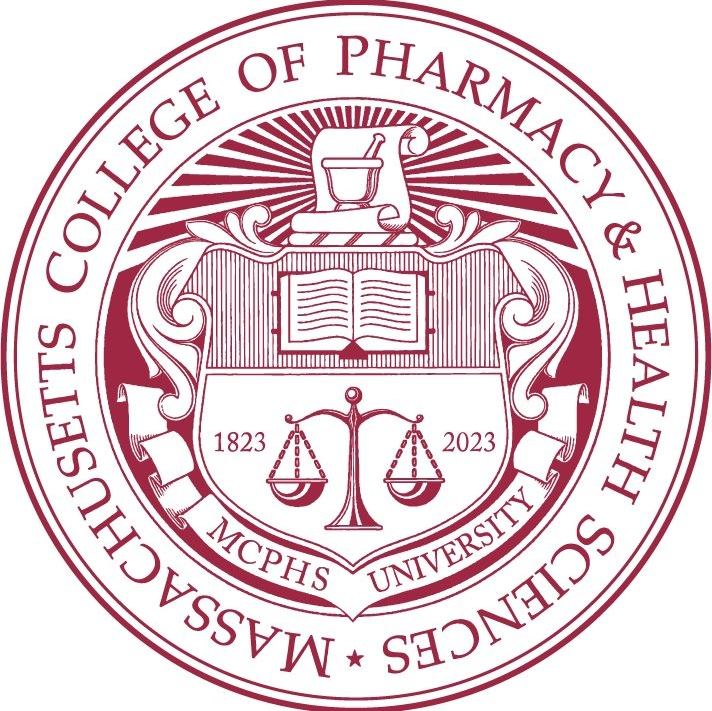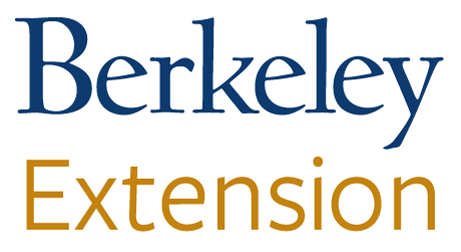- Orientation
- Top 8 Best Online Organic Chemistry Courses 2023
- 1. Best Organic Chemistry Overview: Khan Academy Organic Chemistry
- 2. Best Credited Orgo Course + Lab: University of New England Online CHEM1020/CHEM1020L
- 3. Best Freshman Orgo Course: Open Yale Courses, Freshman Organic Chemistry 1
- 4. Best 200 Level Orgo Course: MCPHS Organic Chemistry 1
- 5. Most Flexible Organic Chemistry Course: Berkeley Extension, Introduction to Organic Chemistry
- 6. Best Upper-Level Orgo Course: Oregon State University Organic Chemistry for Non-Chemistry Majors
- 7. Best Hobby Learning Course: General Chemistry: Atoms, Molecules, and Bonding
- 8. Best Basic Overview Chemistry Course: Introduction to Chemistry: Structures and Solutions
- Frequently Asked Questions About Organic Chemistry Classes
- Extra Credit
- Concluding Thoughts
Organic Chemistry is rather infamous for being the nail in the coffin for many pre-med students who end up switching to other majors. This science course teaches students how molecules containing carbon interact and requires students not just to memorize answers (though there is a good deal of memorization as well) but also to more intuitively understand broader concepts of molecular interaction.
Homework-heavy and intense, Organic Chemistry (often called “orgo”) is not for the faint of heart. Future doctors need a strong background in orgo to achieve MCAT scores that will get them into medical school and help them through their advanced study program. While having strong math skills can get you through other foundational science courses like Physics, it won’t help you here. Orgo is its own creature with its own set of hieroglyphic symbols you must learn to read and interpret.
Orientation
If you’re embarking on pre-med studies, you may want to take a course on orgo in your own time to grasp the concepts a little better before walking into a college course that will go on your permanent transcript. Or, you may already be busy with your day job or other responsibilities, looking for a course you can take online in the evening. Some science enthusiasts who are really looking for an intellectual challenge may also want to take Organic Chemistry to test their mettle and expand their knowledge of life on earth.
Whatever your situation, if you’re looking to study Organic Chemistry online, you need to find a quality course that’s worth your time and effort. We’ve evaluated the classes on our list by several criteria.
Level
Choosing the appropriate level helps you ensure your time is not being wasted. While most of the courses on our list are beginner-level, some courses are designed to build on the basic knowledge you already have. This allows you to select a course that will be in line with your goals and experience.
We also make note of any required prerequisite courses required for individual courses.
Credit
Some students are looking to take a course that can go on their transcripts and give them the college credits they need for their degree. Other students just want an opportunity to develop their skills without the pressure of grades. Our list offers options for both scenarios.
Instruction Style
The way these courses are taught varies from entirely self-directed study programs to courses that give you the opportunity to interact with fellow students or the instructor. Feedback, live chats, or even real-time remote classes are available. This accommodates a variety of students’ learning needs.
Top 8 Best Online Organic Chemistry Courses 2023
1. Best Organic Chemistry Overview: Khan Academy Organic Chemistry
- Open-ended Free
- Course Highlights
- Level: Beginner
- College Credits: No
- Instruction Style: Self-directed
Why we like it
This class is one of the most accessible orgo courses due to its self-directed nature and its beginner-friendly instruction, not to mention it’s free.
Course Review
Khan University offers a basic overview of all the essential concepts you need to understand Organic Chemistry. The course is taught in a series of videos that start by explaining the basics of dot structures and hybridization, then gradually build on that to introduce electronegativity and polarity.
There are no quizzes or assignments in this class, just lectures that feature whiteboard-style visual aids. Students can take their time reviewing the material at their own pace, any time of the day. The material is broken down into 14 units, with shorter videos covering one aspect of the topic at a time.
You don’t need to enroll or even create an account on the website to begin reviewing the subject. You also have no obligation to start at the beginning: you can pick and choose with areas you want to review as you see fit.
Who It’s For
If you are a student preparing to tackle your first semester of orgo and you’re feeling overwhelmed by the prospect, this is a great starter course to help you with a foundational understanding of the initial concepts you’ll need to understand and build on in a college-level course.
Many students also recommend this Khan Academy course as a review course before you take your MCAT. It’s a great way to help you remember all the essentials you’ll need to succeed at the exam, especially if it’s been a few years since your orgo class.
This is also a good course that may satisfy many hobby learners who want to indulge in their interest in chemistry in a low-pressure environment. For a course that covers a similar level of the subject, but offers some practice assignments and a discussion forum for students, you may prefer our pick from Duke University via Coursera.
Pros
- Convenient self-directed learning
- Covers basic concepts in a digestible way
- Accessible for most students
- Excellent review tool for the MCAT
Cons
- Offers no certification
- No exams or assignments to mark progress
2. Best Credited Orgo Course + Lab: University of New England Online CHEM1020/CHEM1020L
- 1 semester $1140-1510
- Course Highlights
- Level: Upper-level Undergraduate
- College Credits: 3-4
- Instruction Style: Graded exams and hands-on assignments
Why we like it
This mix and match lecture and lab course allows you to earn up to three credits from home.
Course Review
The University of New England, with its physical campus in Maine, has been developing a well-respected collection of online learning opportunities for some years now, so students can take advantage of their academic programs from anywhere in the world.
Their Organic Chemistry 1 lecture course has an optional lab course that can be added on. The two courses work together to help students understand the structure of organic compounds. The lab also aims to help students hone their skills as scientific researchers by experimenting with hypotheses. The lab assignments can be completed in your own kitchen.
The lecture is worth three credits, and the lab is worth an additional credit. Depending on your needs, you can mix and match with no obligation to take both.
Who It’s For
If you’re pursuing your degree online or attend a university that accepts online credits from other schools and you’re looking for a chemistry class you can take from home; this is one of the best options we’ve found. There aren’t many classes that allow you to earn a lab credit in your own kitchen.
This is an intensive course that requires students to have some course credits in general Chemistry already achieved. It’s not an intro-level science class by any means, but it is one of the foundations you’ll need for pre-med science studies. Since this is a more intensive course with exams and graded assignments, there are more technical requirements (such as a webcam and mic) than the self-direct classes like our pick from Khan.
The classes have rolling start dates every 2-3 weeks, and you must register in advance for your intended start date.
Pros
- Mix and match the lecture and lab courses
- Regular start dates throughout the year
- At-home lab options
- Fully graded exams and assignments
Cons
- More technical requirements like a webcam
- You must ensure your credits will be accepted
- Requires Chemistry prerequisites
3. Best Freshman Orgo Course: Open Yale Courses, Freshman Organic Chemistry 1
- 1 semester Free
- Course Highlights
- Level: Undergraduate
- College Credits: No
- Instruction Style: Self-directed
Why we like it
Get an ivy league introduction to Organic Chemistry for free.
Course Review
Nobel Laureate and veteran researcher and professor J. Micheal McBride leads this lecture series on introductory Organic Chemistry. Recorded in 2008, this lecture series was recorded in the CHEM 125a classroom over the course of a semester.
As part of Yale’s Open Courses program, students can follow this class broken into 37 lecture videos (originally with three exams interspersed throughout). Each lecture is approximately 50 minutes. Professor McBride uses a variety of visual aids through slideshows that are featured in these videos, and he constantly emphasizes the need to interrogate assumptions and look for proof through experimentation.
This class isn’t intended to just have students memorize the basic concepts of Organic Chemistry but to help students begin to think like scientists at the beginning of their studies. This covers all the essential topics of an initial orgo course, from the basics of atomic structure to entropy.
Who It’s For
While this is a well-rounded course with a lot of thought-provoking content, it’s important to recognize that it will not give you college credits. Yale Open Courses are geared toward people looking for intellectual development on their own schedule but won’t offer any direct help to degree seekers.
The thoughtful and engaging lectures may be challenging to follow, but for those who enjoy learning about science, it offers a lot of interesting content to help widen your perception of the world. Here at Learning Nest, we’re big fans of learning simply to gain knowledge when you have the means to.
If you took Organic Chemistry in the past and are considering a career change that will make it relevant to you again, this is a great class to help you get back into it. For students thinking about the pre-med track who are intimidated by their orgo requirements, this can be a tool to self-study ahead of taking the course (for the first time, or even if you’re attempting it again). If you’re looking for something a little bit shorter and with practice assignments built-in, you could also try this course offered by Duke University via Coursera.
Pros
- Flexible, self-directed learning
- Engaging video lectures with visual aids
- Enjoy the professor’s expertise and experience
Cons
- Does not directly help you when seeking a degree
- No access to the exams to check your progress
4. Best 200 Level Orgo Course: MCPHS Organic Chemistry 1
- 1 semester $460/credit hour
- Course Highlights
- Level: Upper-level Undergraduate
- College Credits: 3
- Instruction Style: Self-directed with graded assignments
Why we like it
This flexible course allows pre-med students to complete assignments at their own pace and offers plenty of extra online support.
Course Review
The Massachusetts College of Pharmacy and Health Sciences offers a flexible Organic Chemistry lecture course that students can do online simply by registering, no need to apply to the college or be accepted as an undergraduate. Once students start their course, they have 16 weeks to complete the assignments on their own schedule with no specific meeting times or deadlines.
Despite the independent study-style online learning, the college makes instructor support and even online tutoring available to their online learners. At the end of the 16 week period, all enrolled students will receive a grade and transcript for the class.
This course is intended as a follow up to the college’s Chemical Principles II, which is a more fundamental chemistry class. If you already have chemistry credits, contact the department to see if you have the necessary prerequisites.
There is an additional companion lab course for this lecture that is worth an additional credit, but currently, it is only offered on-campus, and recent sessions have been canceled due to the pandemic. If you want the ability to get a lab credit from home, We recommend our pick from the University of New England.
Who It’s For
If you are working toward a degree in pre-med, pharmacy, or other medical-related fields but want the freedom to do it on your own schedule, the asynchronous learning model of MCPHS may be very appealing for you. If you only have one day a week to sit down and knock out several assignments at once, that’s perfectly fine since there are no specific deadlines throughout the semester.
It’s designed for students entering into medical and medical-adjacent fields to give them the basic knowledge of organic compounds they’ll need to qualify for their future careers. While more practical and career-oriented than some of the chemistry courses on our list, that may be just the thing for people studying while working or looking to change fields later in life.
It’s important to note that despite the overall flexibility of the course, students must complete all of their assignments within 16 weeks of starting. Students also must have a webcam and access to the course textbook.
Pros
- Flexible asynchronous learning
- Geared toward practical professional chemistry users
- Receive grade and transcript soon after turning in your final
Cons
- Requires some chemistry prerequisites
- Require textbook and webcam
- No companion lab available online, only on campus
5. Most Flexible Organic Chemistry Course: Berkeley Extension, Introduction to Organic Chemistry
- 1 semester $1200
- Course Highlights
- Level: Undergraduate
- College Credits: 3
- Instruction Style: Flexible options
Why we like it
This fundamental orgo course gives an impressive selection of learning options to suit a variety of needs.
Course Review
This introductory Organic Chemistry course doesn’t offer much novelty in its curriculum; like most intro courses on the subject, it helps students understand the fundamentals of covalent bonds, touching on different kinds of compounds and how they behave. However, the truly remarkable aspect of this course is the fact that there are three different options for how to take it.
Students can take the class synchronously by being present at Zoom lectures from anywhere in the world. The Live Online course has specific start dates. For a truly flexible online study option, the “Online, Start Anytime” option allows you to enroll at any time and take the course at your own pace, but you must finish within 90 to 180 days of enrollment. The final option is “Online, Fixed Date,” which has specific start and end dates for completing the course but without the live sessions. However, taking the class on a fixed schedule gives you more opportunities to interact and collaborate with other students and your professor.
Whichever option you choose, the course involves written assignments along with midterms and a final exam to earn your grade.
Who It’s For
Designed for students who are pursuing a healthcare-related field rather than majoring in chemistry, this is an introductory level college course. That means that the only required prerequisites are basic chemistry and algebra knowledge that you probably received in high school.
The bevy of options when it comes to the methods of taking this course will make it a strong candidate for a lot of students. It’s ideal for freshman students on the pre-med or pharmacology track to get their necessary credits. It’s also a good choice for students who go to school part-time and need plenty of choices on how they take their classes.
The course does require you to obtain the textbook in advance, and your technical requirements will vary depending on which learning track you choose. To fully participate in the synchronous learning option, students will need a webcam and mic.
Pros
- Three options for online learning
- No college-level prerequisite course required
- A fundamental course for non-chemistry majors
Cons
- All three options have some time constraints for completing the work
- Textbook not provided
6. Best Upper-Level Orgo Course: Oregon State University Organic Chemistry for Non-Chemistry Majors
- 1 semester $331/credit
- Course Highlights
- Level: Upper-level Undergraduate
- College Credits: 3
- Instruction Style: Self-directed with graded assignments
Why we like it
This is one of the only 300 level orgo courses that can be taken fully online without undergraduate enrollment.
Course Review
This course builds on introductory level Organic Chemistry and helps deepen students’ knowledge of the subject. A more complex and challenging course, it’s intended for students who already have completed several chemistry prerequisites.
It focuses on the concepts students will need to succeed in medical fields like pharmacy and dentistry and for students on a chemical engineering track.
Oregon State’s online classes have set start and end times to fit within semester sessions, but other than that, the learning is asynchronous. Students have flexibility for listening to lectures and working on their course assignments. The course’s video lessons are well-produced with visual aids and interactive features, not merely dry lectures.
Who It’s For
If you have a partially completed degree and found your learning interrupted by life events, this is a great course to help you complete necessary credits to graduate and start your career or postgraduate learning.
The asynchronous learning schedule makes it easier to fit into a busy schedule, but be aware that in some cases, you are required to take proctored exams online, which increases your technical requirements. It’s important to note, too, that even if you aren’t enrolling in a degree program with Oregon State, to take their classes, you must submit your application by the deadline for the upcoming semester.
If you prefer a course that you can simply enroll in and that gives you a variety of learning options, you may prefer our choice from Berkeley Extension.
Even if you aren’t enrolled in a degree program, you’ll receive a transcript for the credits you complete in your online classes. Oregon State also extends the in-state tuition discount to online students no matter where they are located.
Pros
- Upper level orgo for medical or chemical engineering students
- Engaging online learning platform
- Asynchronous learning schedule
Cons
- Must apply to the college ahead of time
- Set start and end dates
- Proctored exams increase technical requirements
7. Best Hobby Learning Course: General Chemistry: Atoms, Molecules, and Bonding
- Approx. 15 weeks Free, or $149
- Course Highlights
- Level: Intermediate
- College Credits: No
- Instruction Style: Self-directed, some interaction
Why we like it
This self-directed series of video lectures and assignments on the fundamentals of organic chemistry was created by instructors from MIT.
Course Review
While not strictly an Organic Chemistry course, this class offered by instructors from MIT focuses on the fundamentals of atomic structure, molecules, and chemical bonding models: all essential for understanding orgo. Additionally, this course teaches students how to use the principles of quantum chemistry to analyze molecular properties and understand how molecules interact with each other.
The class is offered in a series of video lectures with assignments students complete at the checkpoints throughout. There are also discussion forums where students can discuss the course material and respond to discussion questions from the lecture.
Students can opt for paid enrollment, which gives them graded assignments and a certificate of completion, which they can add to a portfolio or resume. Students on the audit track will not receive instructor feedback on their work but can otherwise participate in the message boards and assignments.
Who It’s For
If you’ve always wanted the chance to learn more about the fundamentals of matter and how the world around us works on a chemical level, this class will provide you with the intellectual enrichment you need. For hobby learners, the audit track will likely be sufficient if your goal is to simply learn.
This may also be a good class to take if you are about to start pursuing a degree in pre-med or a similar subject or are changing degree track and want to be better prepared. The only prerequisites are knowledge of high school chemistry and pre-calc. While this class won’t provide any credits toward your degree, it can help give you more confidence and a higher chance of success for your upcoming college-level courses.
Pros
- Touches on fundamental Organic Chemistry Concepts
- Self-directed schedule with some student interaction
- Limited prerequisites and technical requirements
Cons
- Only receive feedback and grades on paid track
- Not a traditional orgo course
- Not transferable credits
8. Best Basic Overview Chemistry Course: Introduction to Chemistry: Structures and Solutions
- Approx. 17 hours Free
- Course Highlights
- Level: Undergraduate Beginner
- College Credits: No
- Instruction Style: Self-directed with assignments
Why we like it
While this course doesn’t offer any credits for a transcript, Introduction to Chemistry is an excellent refresher for those looking to help further their studies.
Course Review
Similar to our course from Edx, this class won’t provide you with any credits for your transcripts. However, it’s a comprehensive introduction to Organic Chemistry offered in partnership with Duke University.
The course is broken down across 7 weeks of learning (though students can adjust the pace of their learning). Students have a series of video lectures that break down the material into digestible bites each week. During certain lessons, students also have practice assignments to complete to help them better understand concepts like light and its wave structure.
Students also have access to a discussion forum to share ideas and respond to the material with other students also taking the course.
Who It’s For
Like our options from Khan Academy, this course is a good review opportunity if you haven’t studied chemistry in a while and need a refresher. It’s also going to be a good option for students looking to brush up their skills ahead of further chemistry studies at their own university.
The flexible deadlines make this easy to fit into your schedule, and the assignments allow you to practice and apply concepts that may otherwise seem abstract. Of course, while students may interact with each other, only students who select a paid track will get their assignments graded or receive instructor feedback.
This course may seem somewhat basic, but that is the intention. It’s an approachable launchpad to understanding the essentials of Organic Chemistry. Paying students also receive a certificate of course completion, though it’s unlikely to benefit you in either your studies or career, so we don’t necessarily recommend it.
Pros
- Flexible deadlines
- Digestible video lessons
- Practice assignments to apply what you learn
Cons
- Very basic overview
- Only receive feedback on paid track
- Certificate has little value
Frequently Asked Questions About Organic Chemistry Classes
You may be nervous as you start studying for your career in a field that requires you to take the notorious Organic Chemistry credit, and before you do it online, you want to make sure you’re making the best use of your time and money. So here are a few tips.
If you’re enrolling in an Organic Chemistry course for college credit, you probably want to make sure you complete the course the first time around and don’t end up having to pay for a repeat, or worse yet, end up changing majors out of frustration.
If chemistry has always been a struggle for you, we recommend taking a free course, like our pick from Yale Open Courses before you tackle a for-credit course. This is a low-pressure way to introduce you to the subject and get you familiar with the concepts. Then, when you’re actually taking the course, you can know what to expect.
It’s important to make sure you don’t miss any classes, if possible, and it’s recommended that you take notes by hand, not on your laptop or tablet. Form a study group with other students in the class if you can so you can work together to solve difficult problems and learn from each other. You can also find practice test resources online to help you prepare for exams.
Harvard University offers a 7 week intensive on Organic Chemistry at their summer school program, and they also have a list of tips to consider.
While many schools treat education as a one-size-fits-all affair, people learn in a variety of different ways. For some students, having an open-ended course with no specific deadlines won’t give them the structure they need to succeed. However, for those with busy schedules and excellent self-motivation, it might be the ideal situation.
It’s important to choose a class that has features that will work for you. Do you need the ability to get immediate feedback to check in on your work? Are hands-on assignments like labs better for you to work on while going through a chemistry class? Fortunately, there are a lot of different options on our list that will suit all kinds of learning styles.
One of the most important things to check on, however, is that whatever university you’re enrolled at or will enroll at will accept your transfer credits from an online course (if you’re taking a for-credited course). Check with your registrar to make sure you won’t have to repeat the course and say goodbye to the time and money you already invested in Organic Chemistry.
Extra Credit
Most students taking Organic Chemistry are preparing for a career in healthcare, a demanding and in-demand job. Here are a few ideas to help you balance your time and maintain your mental health while working towards your degree.
- If possible, make your course load relatively light whenever you are enrolled in Organic Chemistry so that you can make it your main focus.
- Find a mentor to help you, whether it’s an academic advisor, a senior student who has already tackled orgo, or even a tutor who can help you.
- Maintain your physical health. Don’t skip meals, pull all-nighters, or stop bathing. It’s very tempting, but proper rest, nutrition, exercise, and even getting fresh air once in a while will actually help your brain function better.
- Be kind to yourself. We often hold ourselves to extremely high standards that we wouldn’t impose on others. Remember that you’re human too and need a break sometimes. And the goal is to pass, not necessarily to ace Organic Chemistry, so be realistic in your expectations.
Preparing for a Career in Healthcare
The pandemic definitely shed light on the fact that the healthcare system actually sets up many healthcare workers to live an unhealthy lifestyle. With staff shortages, you may look forward to the certainty that you will have a job once you finish your studies, but you also have to be prepared to advocate for yourself and practice self-care once you’re in the workforce.
Finding healthy strategies for coping with stress as a student will help you be better prepared for your future job. You may want to take a look at the Department of Health’s recommendations for “Mental Health and Resiliency Tools for Healthcare Workers” and Mental Health America’s tips on how healthcare workers can support and advocate for each other.
Concluding Thoughts
Many med school students will attest that orgo teaches you more than carbon chains: it teaches you to persevere and helps take your ego down a peg or two. Maybe you have chosen to go into medical studies because you like the intellectual challenge and are naturally scientifically minded. Maybe you want to make a difference and help others, or maybe you just want a stable career that will enable you to care for your family. Whatever your reason, you don’t need to cower in fear when facing Organic Chemistry.
With the help of our list, you can find the right course for your specific needs. You can work towards completing a degree or changing careers with the many for-credit courses we cover; you can also prepare for your first college-level orgo course, or refresh yourself in time for the MCAT with some of the more general options. Even if you just find yourself looking to better understand the universe and expand your scientific thinking skills, there are courses here for you. Happy studying!









